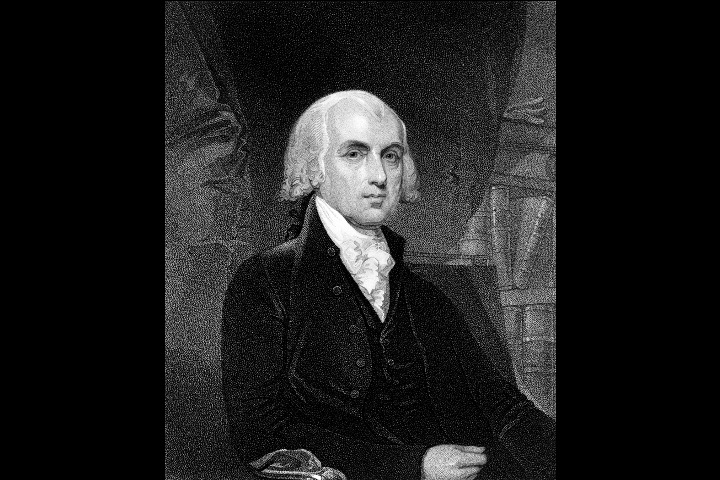
From July 2 to July 5, 1787, the delegates attending the Constitutional Convention in Philadelphia approved a resolution that would sufficiently satisfy the demands of delegates from small states for equality of representation, as well as those from the larger states who insisted that fairness demanded representation on the basis of population. Most historians consider it the compromise that saved the union.
Monday morning, July 2, as soon as the gavel sounded calling the convention to order, the “crucial question” of the motion put forward the previous week by Oliver Ellsworth of Connecticut calling for equality of representation in the Senate was taken up by the members.
The momentum didn’t last long, however, as the first vote on the measure ended in a tie — five states in favor of the Ellsworth proposal and five states against it. The Georgia contingent was divided.
But for the absence of two key representatives, however, that tally could have gone the way of the large states (against the Ellsworth compromise) and the fate of that meeting would have taken an entirely different tack, likely resulting in a deadlock that would have been unbreakable and a Constitution that would have gone unwritten.
William Pierce of Georgia was missing from the meeting because he’d headed to New York to sit in Congress and, more interesting, to fight a duel. Richard Beeman, the author of Plain, Honest Men, provides a brief sketch of Pierce’s close call with death by duel:
By 1787, Pierce found himself deeply in debt, and during the Constitutional Convention’s temporary recess between July 27-August 6, one of Pierce’s creditors, John Auldjo, accused him of defaulting on a debt. Pierce, following the Southern code of a gentleman, promptly challenged Auldjo to a duel. Ironically, Auldjo was a client of Alexander Hamilton’s, and Hamilton, who never approved of dueling, successfully interceded to calm Pierce down enough to prevent the duel from taking place. Had he not done so, it is possible that Pierce might have been the third member of the Constitutional Convention to be killed in a duel. [Richard Dobbs Spaight, a delegate from North Carolina, and Alexander Hamilton himself were both killed in duels.]
The second missing member of the convention that prevented the representation question from failing had a less interesting story.
Daniel of St. Thomas Jenifer, from Maryland, was late that Monday morning when the vote was taken. Both Jenifer and Pierce were known to oppose equality of representation in the Senate. If Pierce had been present, his vote would have moved Georgia from the divided column to the “nays” and if Jenifer had been on time, Maryland would have been divided and moved out of the “ayes,” thus defeating the Elllsworth equality measure by a vote of 6-4, with one state — Maryland — divided.
The impasse prevailed in reality, however, and Charles C. Pinckney moved that a committee be formed for the purpose of coming up with an acceptable compromise. His motion was seconded, and the oft-absent Gouverneur Morris of New York rose and delivered what has been described as “an elaborate and not very pertinent speech.”
Regardless of its relation to the question then being debated, a portion of that address does have particular application to the current state of affairs in the United States, however.
Morris, not exactly a pauper himself, revealed his “fears of the influence of the rich,” whose “schemes will be favored by the extent of the country. The people in such distant parts” will become “dupes of those who have more knowledge and intercourse.” Two hundred and thirty-six years have passed, and liberty yet lingers under the immeasurable influence of an oligarchy composed of wealthy power brokers inside and outside of government.
Before taking a vote on the Pinckney proposal, Elbridge Gerry of Massachusetts said in support:
Something must be done, or we shall disappoint not only America, but the whole world…. We must make concessions on both sides. Without these, the constitutions of the several states would never have been formed.
Remarkably, the opposition to the naming of a committee was spearheaded by two leading lights of the convention (and American history): James Madison of Virginia and James Wilson of Pennsylvania.
Wilson objected to the committee because it would decide according to the very rule of equality of representation which he opposed. According to Madison’s record of the convention, Wilson said, “Experience in Congress had also proved the inutility of Committees consisting of members from each State.”
For his part, Madison said:
[He] had rarely seen any other effect than delay from such committees in Congress. Any scheme of compromise that could be proposed in the committee might as easily be proposed in the House; and the report of the Committee when it contained merely the opinion of the committee would neither shorten the discussion, nor influence the decision of the House.
On the question of selecting a member from each state to serve on the committee, the states voted 11-1 in favor. The following delegates were elected to the committee: Elbridge Gerry, Benjamin Franklin, George Mason, William Davie, and John Rutledge (from the large states); and Oliver Ellsworth, Robert Yates, William Patterson, Luther Martin, and Gunning Bedford, Jr. William Baldwin from Georgia would also serve (he had voted in favor of the Ellsworth compromise proposal when that vote was taken earlier in the day).
After a break to celebrate the anniversary of the Declaration of Independence, on July 5, Gerry delivered the report of the committee.
It is not surprising that the compromise offered by the committee was crafted by the able diplomat Benjamin Franklin. Franklin recommended three propositions:
- In the House of Representatives (“the first branch”), there should be one representative for every 40,000 inhabitants;
- The House should be given exclusive authority to originate appropriations bills; and,
- In the Senate, each state should have an equal number of representatives.
As expected, Madison, Mason, and Morris opposed the committee’s recommendations.
The speech delivered by Madison on July 5, 1787 arguing against this compromise for the sake of union deserves special scrutiny. Regarding the plea that the large states should accede to the compromise for the sake of union, Madison said that he
conceived that the Convention was reduced to the alternative of either departing from justice in order to conciliate the smaller States, and the minority of the people of the U. S. or of displeasing these by justly gratifying the larger States and the majority of the people.
He declared that he could not himself hesitate as to the option he ought to make:
The Convention with justice and the majority of the people on their side, [have] nothing to fear. With injustice and the minority on their side they [have] every thing to fear. It [is] in vain to purchase concord in the Convention on terms which would perpetuate discord among their Constituents.
How timely!
Today, as the federal government acts egregiously with “injustice and the minority on [its] side,” it is self-defeating, shortsighted, and shameful for state governments to sell their birthright of sovereignty — as well as that of their citizens’ individual and civil liberty — for a mess of “bipartisan” political pottage.
In the spirit of Madison’s address on July 5, 1787, state legislators should determine to reject as null, void, and of no legal effect every unconstitutional act of the federal government, thus shielding their citizens from the perpetual assault on life, liberty, and property that follows from enforcing the unlawful edicts of Congress, the courts, and the president.
Shop For Night Vision | See more…
Shop For Survival Gear | See more…
-
Sale!

Japanese 6 inch Double Edged Hand Pull Saw
Original price was: $19.99.$9.99Current price is: $9.99. Add to cart -
Sale!

Stainless Steel Survival Climbing Claw Carabiner Multitool Folding Grappling Hook
Original price was: $19.99.$9.99Current price is: $9.99. Add to cart -
Sale!

Portable Mini Water Filter Straw Survival Water Purifier
Original price was: $29.99.$14.99Current price is: $14.99. Add to cart
















































